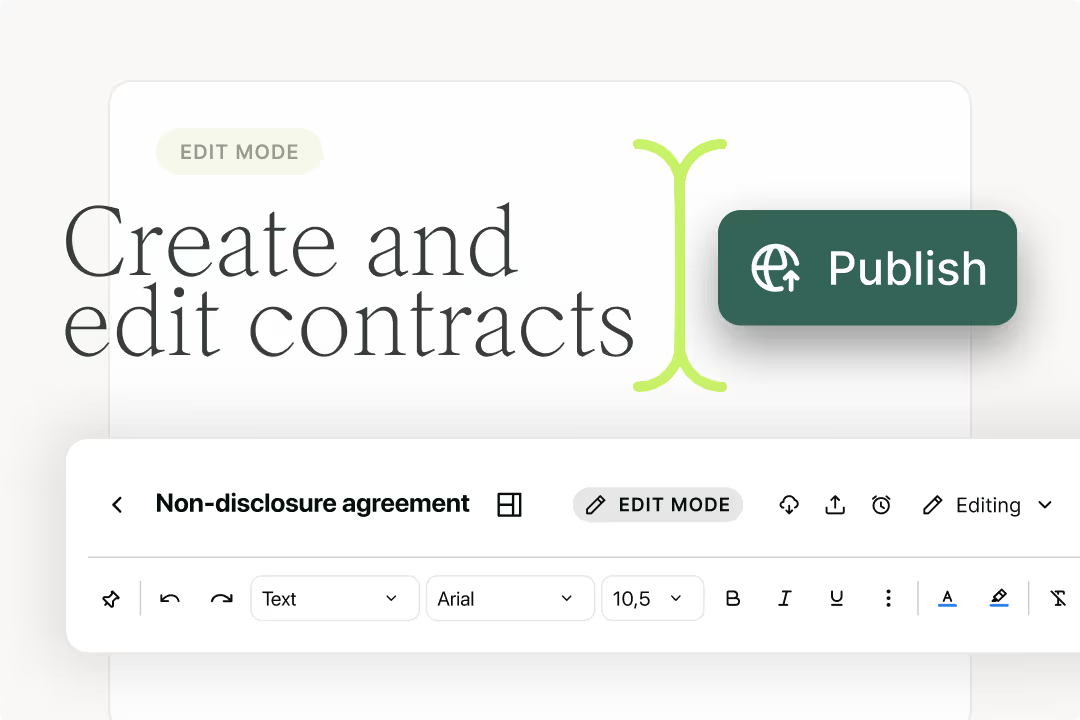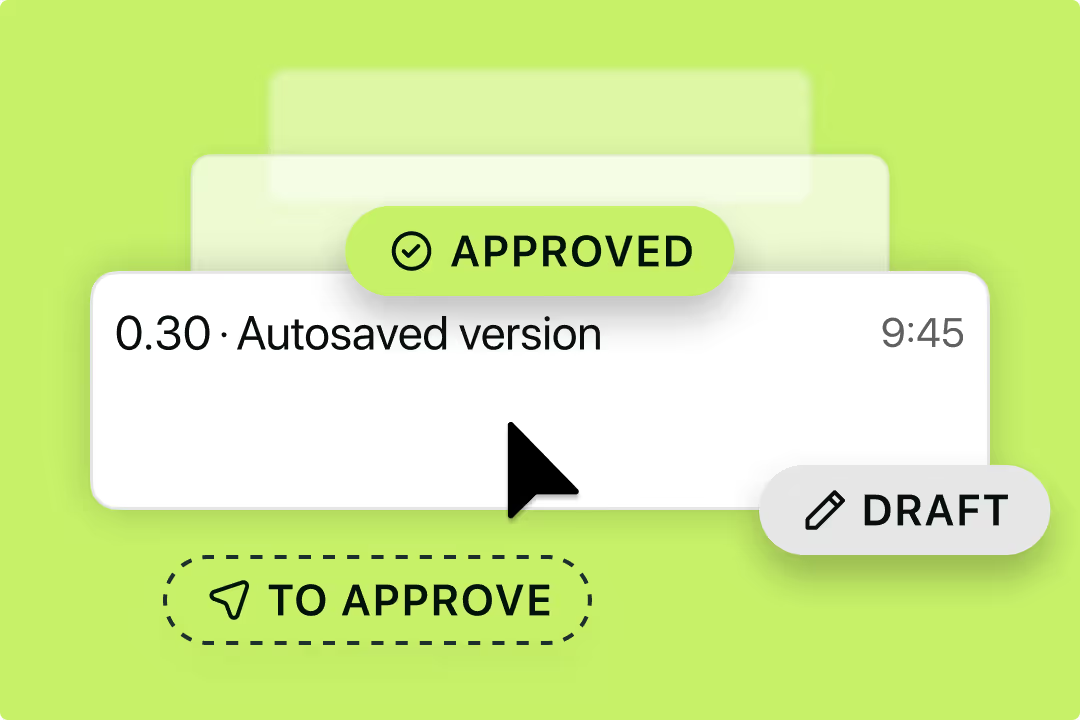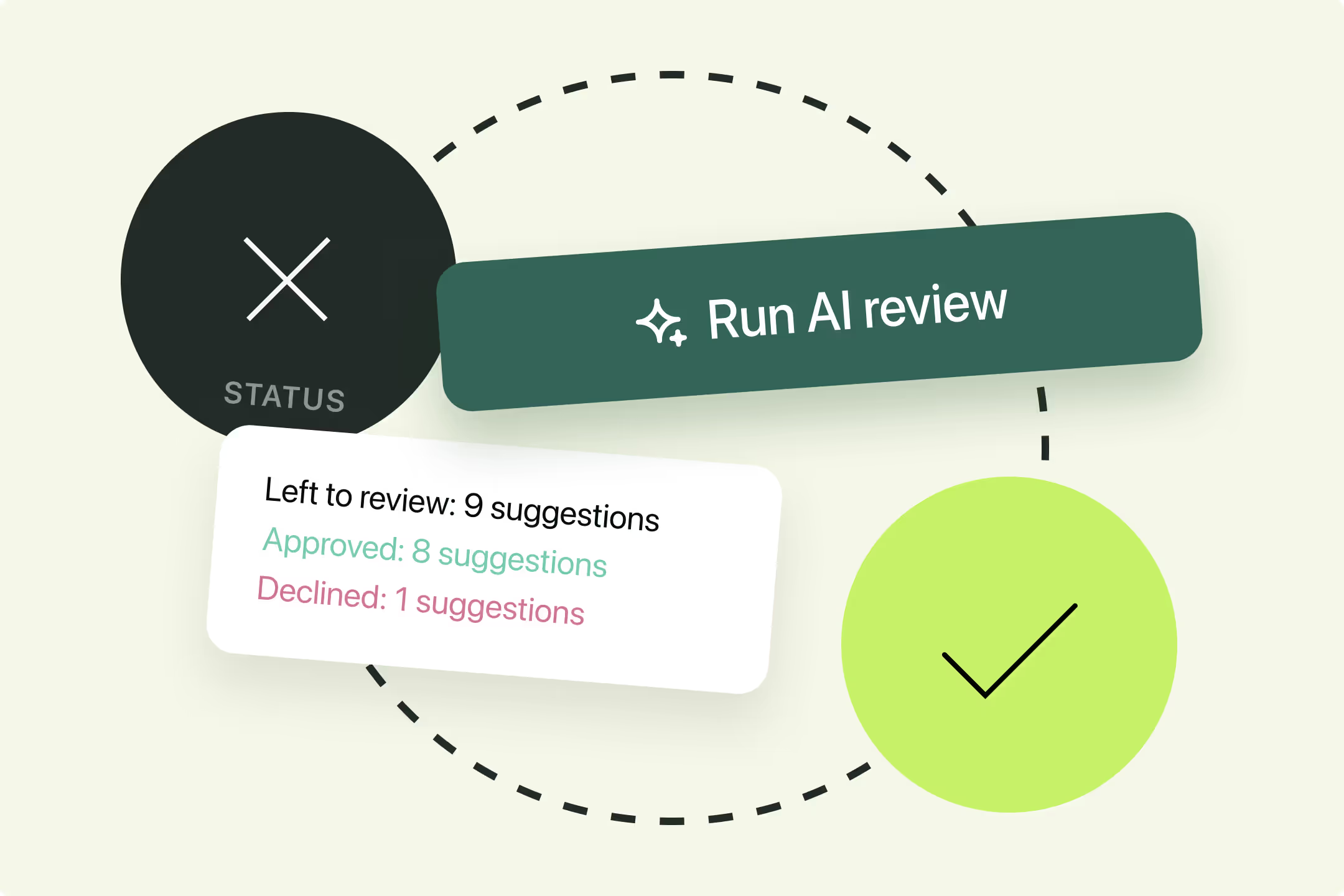Solutions
Customer Support
Resources
You write a contract. It looks crystal clear. Then someone tries to use it, and suddenly everyone has a different idea of what it means. Sound familiar?
This is the kind of headache that keeps legal teams up at night.
For in-house counsel, unclear contracts create a perfect storm of problems. They increase legal risk, slow down business operations, and damage relationships with counterparties.
On top of that, ambiguous contracts force legal teams to spend valuable time interpreting and clarifying terms that should have been clear from the start.
As Juro's General Counsel Michael Haynes puts it:
{{quote1}}
The good news? Contract ambiguity is entirely avoidable with the right approach, tools, and processes. This guide will show you how to draft a clear contract that protects your business while enabling faster deals and better relationships with counterparties.
Contract ambiguity occurs when terms or provisions within an agreement can be interpreted in more than one way. In other words, they have more than one meaning. This creates uncertainty about the parties' intentions and can lead to expensive disputes later down the line.
It's simple, really: if two intelligent people can read the same contract and come away with different ideas about what it means, you've got a problem.
When contracts are unclear, courts often apply something called the contra proferentem rule. It's pretty straightforward: if a contract term is ambiguous, courts will interpret it against the party who wrote it. This means if you're drafting contracts, unclear language could actually work against you in court.
Understanding where ambiguity typically creeps in helps legal teams prevent it, so let’s start there. Here are some of the most common culprits of ambiguity in contracts:

Contract ambiguity creates far-reaching consequences that extend beyond legal departments. The most immediate impact is on your relationship with the counterparty, who you inevitably make life harder for when you let ambiguity creep into your contracts.
As Stefania Passera, contract design specialist, explains, "Unclear, careless communication is disrespectful to the recipient; it sends the message that clarity and transparency are a luxury."
But the true cost of ambiguity in contracts only compounds over time.
The most visible costs of contract ambiguity appear in legal disputes and resolution:
Beyond direct legal expenses, ambiguous contracts create numerous operational inefficiencies:
Perhaps worst of all, ambiguous contracts negatively impact business relationships and a company's market reputation:
Writing clear contracts isn't about hoping for the best. It's about having a plan. Think of it like building a house – you need a solid foundation, good materials, and clear blueprints. For contracts, that means using the right words (precise terminology), organizing them well, and keeping things simple.
First, define your terms clearly. If you're using a special word or phrase, tell everyone exactly what it means right at the start. Start by creating comprehensive definition sections that establish exactly what key terms mean within the context of your agreement.
Then stick to those same words throughout the contract. Don't suddenly switch from "the Software" to "the Product" halfway through – that just confuses people.
When you can, use terms that everyone in your industry already knows and understands. There's no need to reinvent the wheel. If possible, replace subjective terms like "reasonable" or "substantial" with specific, quantifiable metrics. When dealing with timeframes, quantities, or performance standards, use exact measurements instead of vague estimations.

Contracts should follow a logical flow that's easy for readers to follow. Here’s our advice:
Writing in plain language doesn't mean oversimplifying complex legal concepts. Instead, it means expressing those concepts clearly and directly, or choosing more appropriate language where possible.
In particular, you should focus on eliminating redundant phrases and swap outdated legal jargon for clearer and more modern alternatives.
{{quote2}}
If you favour plain language over the more complex equivalents, you’ll also cut down how often you have to define words or phrases in your contract. It’s a win-win.
Want to really find out how clear your contract terms are? Start by getting input from all affected business units – they'll be the ones working with these terms day-to-day, and they’re a great reflection of the type of end users on the other side of the contract.
In doing this, remember that the contract still needs to strike a balance between being accessible and customer-friendly, while also protecting your company’s interests.
Modern contract technology has transformed how organizations can deliver clearer contracts.
Intelligent contract management platforms like Juro provide powerful standardization capabilities that help maintain consistency across all your agreements. With automated contract templates and pre-defined playbooks, you can make sure the entire team consistently uses clear and approved language.
Meanwhile, version control features track changes and maintain a clear record of how the contract evolved, and what was negotiated. This is an effective way to pinpoint the areas of a contract that create the most friction, and resolve them.

Perhaps most exciting is the emergence of AI-powered contract drafting and review tools. Juro’s contract AI assistants can analyze language patterns, identify potential risks, and flag inconsistencies that might create ambiguity. All of this helps you reach that all important clarity faster.

Let's be clear: ambiguous contracts aren't something you should have to put up with, and the path to better contracts is simpler than you might think.
Start by creating robust contract templates that strike that perfect balance between simplicity and protection. Then, automate those templates with a platform like Juro to make this repeatable for standard contracts, no matter who creates or sends them out.
From there, you'll unlock faster contract creation, reduced friction during negotiations, and more predictable outcomes post-signature. To find out more about how Juro’s intelligent contract automation software can simplify contracting for your team, fill in the form below.

Lorem ipsum dolor sit amet, consectetur adipiscing elit. Suspendisse varius enim in eros elementum tristique. Duis cursus, mi quis viverra ornare, eros dolor interdum nulla, ut commodo diam libero vitae erat. Aenean faucibus nibh et justo cursus id rutrum lorem imperdiet. Nunc ut sem vitae risus tristique posuere.

